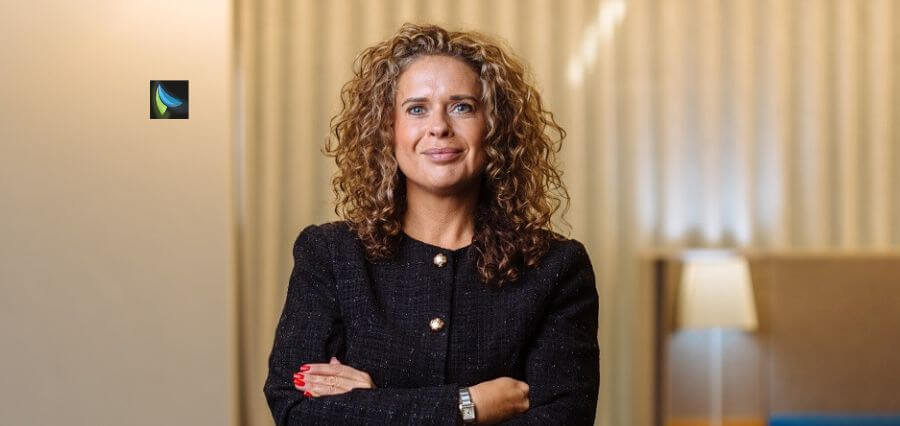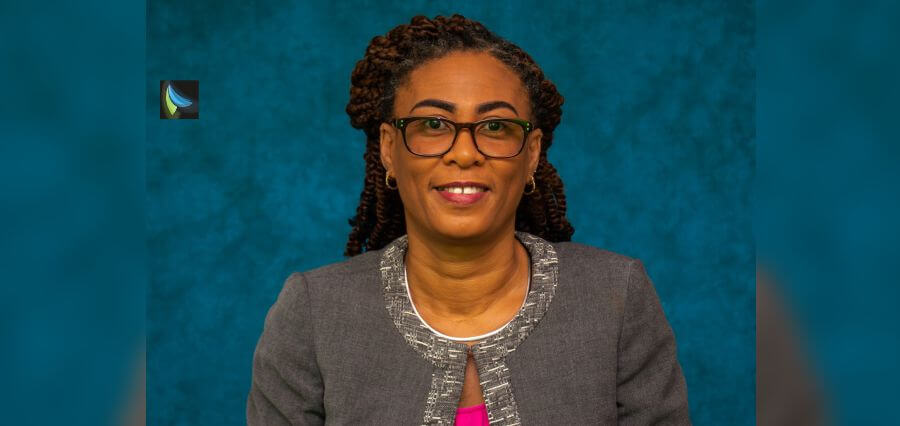Leveraging Financial Skills to Foster Governance in Non-Profits!
At a time when businesses are continually being pushed to adapt in order to keep up with turbulence and increased expectations, the challenge is to identify inspirational leaders that can lead their teams to innovate and adapt. In the midst of all this madness is Lisa Volekaert, a bright light of hope and transformation. Serving as a dedicated Volunteer Director of the Cayman Islands Humane Society, she illustrates precisely what visionary leadership is when she integrates her skills in the workplace with a very profound sense of animal welfare.
Lisa has over three decades of experience in audit, taxation, and corporate governance. Under the guidance of its Board of Directors and Operations Manager, the Humane Society has been undergoing a shift toward fostering an environment where creativity and compassion intersect.
Lisa’s leadership style is characterized by her ability to empower her team and the community. She instills a culture of responsibility and proactive engagement, encouraging individuals to take ownership of their roles in promoting responsible pet ownership and sustainable practices. Her dedication inspires those around her, creating a ripple effect that positively impacts countless lives.
Through her commitment, Lisa not only addresses the immediate needs of animals but also cultivates a long-term vision for their welfare. In doing so, she embodies the essence of visionary leadership, transforming challenges into opportunities for growth and inspiring others to join her mission for a better future.
Let’s discover her journey ahead!
Lisa’s Professional Travel
Lisa began her career in public accounting, specializing in audit, accounting, and taxation, which provided her with a strong foundation in financial analysis and regulatory compliance. Over the years, she transitioned into fund administration, where she worked closely with clients to ensure proper governance, operations, and reporting.
Approximately 20 years ago, Lisa took on the role of independent director, allowing her to offer strategic and fiduciary oversight for investment-related entities. In addition to her corporate responsibilities, she serves as a director for the Cayman Islands Humane Society, the only animal shelter in the Cayman Islands.
This experience has deepened her understanding of governance besides the unique challenges faced by non-profit organizations. Lisa’s motivation to serve in these capacities stems from her desire to contribute to causes and businesses that create a lasting, positive impact in both the corporate world and her community.
A Commitment to Animal Welfare
Lisa serves as a director at the Cayman Islands Humane Society, an important organization that has been a foundation of the community for over 50 years. As the only shelter in the Cayman Islands, the Humane Society is dedicated to rescuing, protecting, and finding loving families for the homeless cats and dogs in the region.
The organization’s mission centers around nurturing a society that values animal rights and treats all creatures with respect and kindness. They strive to promote education on responsible pet ownership, fostering community collaboration to create a balanced ecosystem.
The Humane Society aims to end cruelty, overlook, and abuse while addressing the critical issue of overpopulation and its environmental impact. Many residents remain unaware of the importance of spaying and neutering pets, which exacerbates the overpopulation problem.
Operating on a limited budget, the shelter relies heavily on donations and the tireless efforts of its dedicated staff and volunteers. Despite these challenges, Lisa and her team are resolute in their promise to make a difference, continually working to raise awareness and secure sustainable funding to help as many animals as possible.
Effective Governance: A Vision for Impact
Lisa has always been inspired by the notion that effective governance can create a tangible difference, not just for shareholders but for the entire organization and the community it serves. Her early career in audit and taxation provided her with a deep understanding of the inner workings of businesses, particularly in terms of financial sustainability and regulatory compliance.
Later, her experience in fund administration exposed her to the complexities of managing large, multifaceted structures and entities. These experiences have shaped her approach to leadership, emphasizing responsiveness, transparency, strong ethical standards, and a long-term perspective.
Whether in a corporate boardroom or at the Humane Society, Lisa believes that transformation occurs when strategy aligns with clear governance and makes certain that the right people and resources are in place to execute that vision.
Lisa’s Mission
Lisa has been at the facade of a significant transformation at the Cayman Islands Humane Society, which is grappling with severe financial strain and a growing pet overpopulation watershed. As the only shelter on the island for over 50 years, the organization has faced rising operational costs and difficulties in securing donations, as both individuals and businesses prioritize their own financial concerns.
A dire issue has been the influx of stray and homeless animals. This situation has stretched the shelter’s limited resources thin, imposing difficult decisions about the number of animals they can care for.
To tackle these challenges, Lisa and the team have implemented a multipronged strategy. In the short term, they are optimizing resources and diversifying fundraising efforts through outreach campaigns, social media drives, and a 50/50 raffle initiative, while actively seeking grants for additional funding. Long-term, they are focused on raising awareness about responsible pet ownership and the importance of spaying and neutering, understanding that changing community behaviors requires time and persistence.
The biggest challenge remains balancing the immediate needs of the animals with financial realities. Lisa aims to maintain transparency with the community about the shelter’s limitations while seeking consistent support and innovative fundraising solutions to ensure the sustainability of the organization.
Devotion to Endless Learning
Lisa understands that staying ahead of the curve requires a proactive approach to constant learning. She selects staying informed about regulatory changes, technological advancements, and industry trends through diligent research, attending conferences, and nurturing a strong network of peers. This faithfulness enables her to route her field with confidence and intuition.
Civilization of Innovation: Lisa’s Approach
Innovation is a key driver of transformation, particularly in the current speedily embryonic business setting. Lisa urges a polish of innovation by raising an open mindset, where team members feel empowered to propose new ideas, even if those ideas challenge the status quo.
For instance, in her work with the Cayman Islands Humane Society, she has encouraged the implementation of new approaches to fundraising and outreach, such as utilizing social media and digital platforms to raise awareness and increase donations.
Through creating a safe space for experimentation and learning, Lisa warrants that her team feels supported when taking calculated risks, ultimately driving meaningful change within the organization.
Balancing Immediate
Lisa understands that balancing short-term results with long-term vision is one of the greatest challenges in leadership. In the organizations she collaborates with, she settles clear communication and alignment between immediate goals and broader strategic objectives.
For example, at the Humane Society, Lisa has focused on urgent fundraising efforts to keep the shelter operational while simultaneously developing long-term strategies, such as community education on spaying and neutering, to address the root causes of the stray animal problem.
The Ideal Team Member
Lisa seeks human beings who embody adaptability, ethics, and proactive problem-solving skills. In vigorous and resource-constrained environments, such as the Cayman Islands Humane Society, she believes it is necessary for team members to think on their feet and remain dedicated to the mission.
Lisa underlines the importance of mentorship, open communication, and hands-on training as fundamental elements in developing talent, whether within a corporate or non-profit framework.
Approach to Business Transformation
Lisa accentuates that the success of business transformation is typically assessed through a blend of financial and operational metrics. In her corporate roles, she focuses on performance measures, regulatory compliance, and operational metrics as key indicators of success.
At the Cayman Islands Humane Society, Lisa features that success is gauged by the number of animals rescued, rehabilitated, and rehomed, alongside the level of community engagement and fundraising support.
In both contexts, she values qualitative feedback from stakeholders as highly as quantitative metrics, recognizing that it provides a deeper understanding of the broader impact of their efforts.
Directing Difficult Decisions
The Humane Society recently faced a tough decision where the shelter was overwhelmed by a surge in stray and homeless pets. With rising costs for basics and decreasing donations, the team had to choose between continuing full operations, venturing unsustainable finances, or reducing intake to maintain quality of care.
After carefully reviewing financial data and exploring funding options like emergency drives and grants, the team decided to temporarily limit intake and prioritize serious cases and increased efforts to find homes for existing animals and emphasized public education on spaying and neutering to prevent further issues.
Though difficult, this decision was made with the animals’ well-being and the shelter’s long-term sustainability in mind. This balanced approach reflects her devotion to overcoming these challenges and expanding the shelter’s capacity in the future.
The Importance of Open Communication
Lisa spotlights that open communication is essential, especially during periods of change. She assures that communication flows in both directions, advocating that leadership should not only provide instructions but also actively listen to feedback from the team.
For Lisa, transparency is key—whether it concerns financial performance, strategic direction, or day-to-day operations. This approach looks after a sense of ownership and teamwork among team members, even when resources are limited.
The Path to Effective Governance
She makes a point of the importance of strong governance and honorable leadership in driving transformation. She recognizes that change does not occur overnight; it demands both a strategic vision and practical implementation. Lisa advises patience and a steadfast focus on long-term goals while remaining agile enough to adapt to evolving circumstances.
One of her key lessons is that true leadership is rooted in service—whether to shareholders, employees, or the community. Giving to Lisa, a leader’s role is to facilitate growth and success for others rather than pursuing personal gain.



















